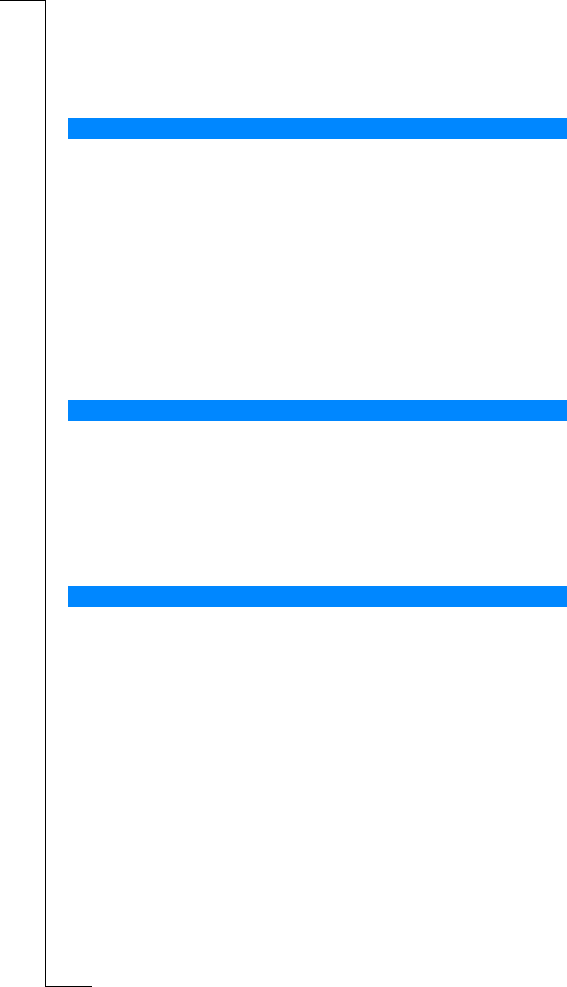
N
o
t
f
o
r
C
o
m
m
e
r
c
i
a
l
U
s
e
E
r
i
c
s
s
o
n
M
o
b
i
l
e
C
o
m
m
u
n
i
c
a
t
i
o
n
s
A
B
116 Guidelines for Safe and Efficient Use
• Only use an antenna that has been specifically designed for your phone.
Unauthorised antennas, modifications, or attachments could damage the
phone and may violate the appropriate regulations causing loss of per-
formance and radio frequency (RF) energy above the recommended limits.
To enjoy optimum performance with minimum power consumption please:
• Hold the phone as you would any other telephone. While speaking directly
into the mouthpiece, angle the antenna in a direction up and over your
shoulder. If the antenna is extendable/retractable, it should be extended
during a call.
• Do not hold the antenna when the phone is in use. Holding the antenna
affects call quality, may cause the phone to operate at a higher power level
than needed and shorten talk and standby times. If your mobile phone is
equipped with an infrared eye, never direct the infrared ray at anyone’s eye
and make sure that it does not disturb any other infrared units.
Your mobile phone is a radio transmitter and receiver. When the phone is
turned on, it receives and transmits radio frequency (RF) energy. Depending
on the type of mobile phone you possess, it operates on different frequency
ranges and employs commonly used modulation techniques. The system that
handles your call when you are using your phone controls the power level at
which your phone transmits.
The International Commission on Non-Ionising Radiation Protection
(ICNIRP), supported by the World Health Organisation (WHO), published
during1996 a statement and in 1998 guidelines which set recommended limits
for exposure to RF fields from handheld mobile telephones. According to
ICNIRP statement, which is based on the available body of research, there is
no evidence that mobile terminals meeting the recommended limits can cause
any adverse health effects. All Ericsson telephones conform to the ICNIRP
guidelines and other international exposure standards, such as:
• CENELEC European Pre-standard ENV50166-2:1995 (Europe)
• ANSI/IEEE C95.1-1992 (USA, Asia-Pacific)
• AS/NZS 2772.1 (Int):1998 (Australia, New Zealand)
Efficient Phone Operation
Radio Frequency Energy
Exposure to Radio Frequency Energy


















